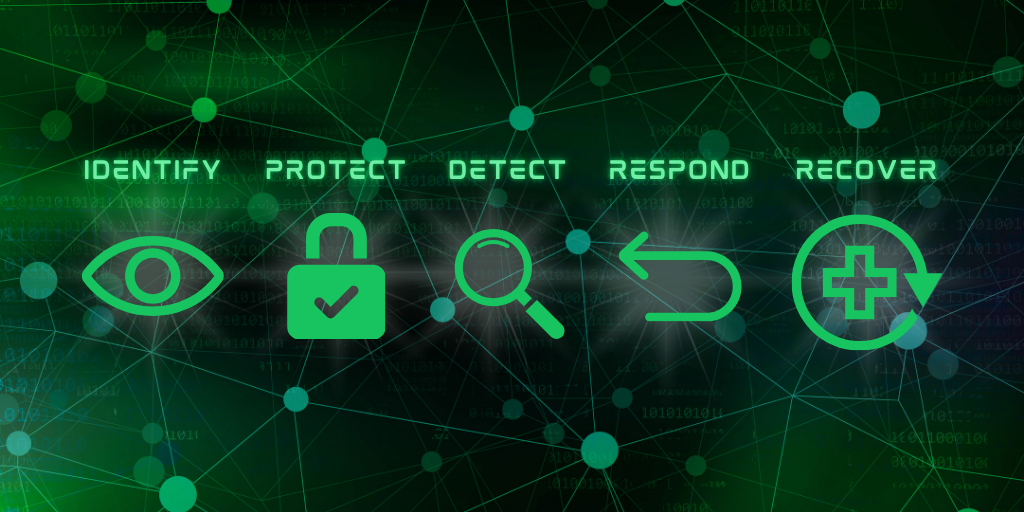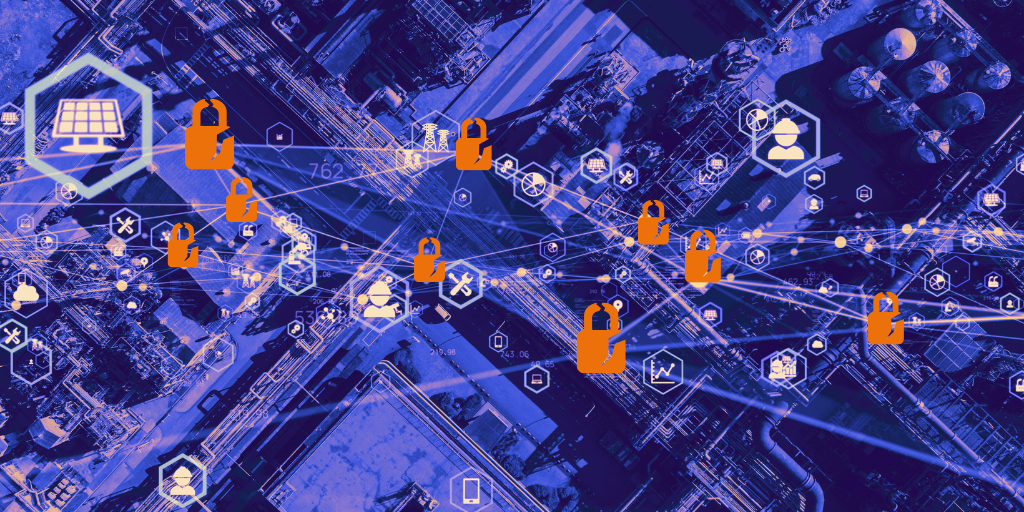Effective Cybersecurity: Leveraging the NIST Framework
In an era of ever-evolving cyber threats, small businesses can adopt the NIST Cybersecurity Framework to achieve robust cybersecurity without...
4 min read
.jpeg) Michael Markulec
:
Dec 2, 2024 6:22:57 PM
Michael Markulec
:
Dec 2, 2024 6:22:57 PM

Unlock the potential of your cybersecurity strategy to drive business growth and enhance customer trust.
Cybersecurity doesn’t exist in isolation—it is intricately connected to the broader objectives of your business. If your security strategy doesn’t align with your business goals, you’re essentially working against the current. This misalignment can lead to significant challenges, as the drive towards secure computing might inadvertently cause unnecessary friction within the organization. Business leaders committed to safeguarding their organizations must delve deeply into the intricate details of the company’s priorities. This understanding is crucial for making well-informed decisions regarding acceptable levels of risk and selecting the appropriate security measures that protect and facilitate business growth and progress.
For instance, if your organization prioritizes data protection and fosters customer trust, your security strategy should be designed to invest in measures that heavily safeguard these critical areas. This could involve implementing advanced encryption technologies, conducting regular security audits, and ensuring compliance with data protection regulations. On the other hand, if your organization is pursuing a digital innovation agenda, your security team should focus on protecting these “new digital assets” by developing a strategy that aligns with the primary initiatives outlined by your business leadership. This might include adopting cutting-edge security solutions tailored to emerging technologies, ensuring that innovation does not come at the expense of security. You can create a cohesive approach supporting security and business advancement by aligning your cybersecurity strategy with your business goals.
For many organizations, cybersecurity is often perceived as a necessary financial burden—a cost center that drains resources rather than contributing to the company's growth and innovation. This perception can lead to reluctance to invest adequately in cybersecurity measures, potentially leaving the organization vulnerable to threats. However, this viewpoint can be significantly altered by adopting managed security services. By leveraging these services, businesses can transform cybersecurity from a mere cost into a strategic enabler of operational efficiency and business resilience. Managed security services help prevent unexpected expenses arising from security breaches and play a crucial role in strengthening trust with customers and partners. This trust is vital in today’s digital economy, where data breaches can severely damage a company’s reputation and customer relationships.
Managed security services offer organizations access to specialized skills and cutting-edge technologies that might otherwise be prohibitively expensive to develop and maintain internally. These services are provided by experts constantly updating their knowledge and tools to stay ahead of emerging threats. By outsourcing these critical functions, companies can redirect their focus and resources towards their core business activities, such as product development, customer service, and market expansion, while knowing that their cybersecurity measures are robust and up-to-date. This strategic outsourcing allows businesses to benefit from the latest security innovations without the overhead of maintaining a full-scale, in-house cybersecurity team. As a result, organizations can achieve a more agile and responsive security posture, which protects their assets and supports their overall business objectives and growth strategies.
Moving to the cloud? Great! The transition to cloud computing offers numerous advantages, such as increased flexibility, scalability, and cost-efficiency, which can significantly enhance your business operations. However, amidst the excitement of leveraging these benefits, it's crucial to recognize the fundamental aspect of security. A comprehensive cloud security strategy is critical because the cloud provides a dynamic and adaptable environment and introduces a unique set of risks and vulnerabilities. These risks become particularly pronounced if your organization frequently switches between cloud providers or employs a hybrid setup combining on-premises and cloud resources. It's a common misconception that businesses are inherently secure simply because they operate in the cloud or that using a single cloud provider guarantees security. In reality, the cloud environment requires vigilant and proactive security measures to protect against potential threats.
Implementing a robust identity management system is one of the most effective methods of securing a cloud environment. This system ensures that only authorized users can access sensitive and mission-critical data, preventing unauthorized access and potential data breaches. Identity management involves using advanced authentication protocols, such as multi-factor authentication, to verify user identities and control access to cloud resources. Additionally, adequate cloud security encompasses the protection of the actual data itself. This means safeguarding the data that resides within the cloud infrastructure and the data in transit between different locations or systems. Employing encryption technologies, secure data transfer protocols, and regular security audits are vital components of a comprehensive cloud security strategy. By prioritizing these measures, businesses can mitigate risks and ensure their cloud operations remain secure and resilient against evolving cyber threats.
Cybersecurity isn’t something you can “set and forget.” It requires constant vigilance and adaptation to the ever-changing landscape of digital threats. Cyber threats are not static; they continuously evolve, becoming more sophisticated and persistent. Hackers and malicious actors are always looking for vulnerabilities, tirelessly probing for weaknesses in your systems. They may spend months or even years searching for an opening, a way to infiltrate your defenses. Their persistence is relentless, and if they eventually succeed, the consequences can be severe. When a breach occurs, you may find that your organization has suffered a security incident and fallen behind your competition, losing valuable time and resources in the process.
To combat this, continuous monitoring is essential. This involves a proactive approach to cybersecurity, where organizations maintain a vigilant watch over the movements of data and access to it. By implementing advanced monitoring tools and techniques, you can detect anomalies and unusual activities in real time, allowing for swift responses to potential threats. This proactive stance is crucial in identifying and mitigating risks before they cause significant harm. Furthermore, by fostering a culture of continuous improvement within your organization, you can ensure that your cybersecurity measures are reactive and anticipatory. This means regularly updating and refining your security protocols, training staff to recognize and respond to threats, and staying informed about the latest developments in cybersecurity. Doing so can ensure that your defenses are always one step ahead of potential threats, safeguarding your organization’s assets and maintaining a competitive edge in the marketplace.
Trust is of utmost importance in the consumer goods industry and serves as the foundation of successful business relationships. Customers need to feel confident that their personal and financial data is secure when engaging with your brand, whether they are purchasing, signing up for a service, or simply browsing your website. Strong cybersecurity measures can be a crucial differentiator in this competitive marketplace that sets your company apart. By investing in robust cybersecurity, you protect sensitive information from potential breaches and demonstrate a commitment to safeguarding your customers' interests. This proactive approach can help you build stronger, more trusting relationships with your customers and partners, ultimately enhancing your brand’s reputation and credibility in the industry.
Furthermore, you can leverage your cybersecurity capabilities as a powerful selling point. You can reassure potential customers that their information is in safe hands by highlighting your unwavering commitment to data protection and customer trust in your marketing materials. This transparency and dedication to security can become a unique selling proposition that distinguishes your brand in a crowded market. By positioning cybersecurity as a competitive advantage, you can protect your business from potential threats and drive growth and innovation. This strategic focus on security can lead to increased customer loyalty, attract new clientele, and open up expansion opportunities, all while ensuring that your business remains resilient and forward-thinking in an ever-evolving digital landscape.

In an era of ever-evolving cyber threats, small businesses can adopt the NIST Cybersecurity Framework to achieve robust cybersecurity without...

Phishing attacks are becoming increasingly sophisticated, posing a significant threat to businesses of all sizes. Implementing key strategies can...

In today's digital age, small businesses are increasingly vulnerable to sophisticated cyber threats, including supply chain attacks that exploit...